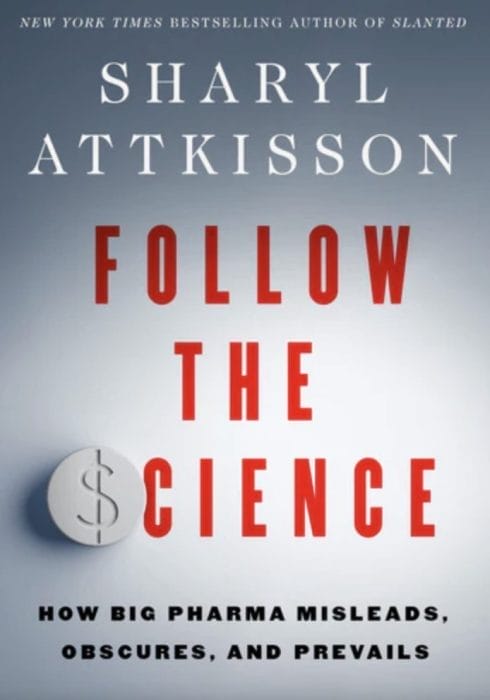Before “opportunity zones” were the talk of the Republican National Convention, my television program Full Measure set out to learn what they are all about.
Here’s the transcript of my interview about it with Sen. Tim Scott (R-S.C.). You can watch the video report by clicking the link at the bottom.
As the country strives to heal the economic damage from coronavirus, some say “opportunity zones” can play a special role. Senator Tim Scott of South Carolina came up with the idea of opportunity zones and explains what they can do.
Tim Scott: Opportunity zones are a way for us to bring more resources from the private sector into the parts of the country that are in desperate need of new development and new resources.
Sharyl: In practical terms, is this offering really favorable loan terms for somebody that starts a business in a dilapidated area or an area that needs help?
Scott: Well, what this requires for you to take advantage of the opportunity zones is a longterm investment in one of the areas. What we don’t want our folks to come in, make a quick turnaround, make a profit and run out. You have to be there at least five years, optimally seven years, in order to get the bigger benefits of the zones. But these are not loans. They’re not government handouts. It is specifically designed to bring entrepreneurs into neighborhoods to refurbish homes, to start businesses, to attract more wealth into the neighborhoods so that the residents of those neighborhoods have a chance to prosper and succeed because of this notion called opportunity zones.
Sharyl: What do they, the people who come into these areas, get out of it?
Scott: If you stay for seven years, you get a 15% reduction on the capital gains tax that you owed at the beginning 2019. You pay that tax to 2026. So you get a seven year delay in paying the tax. You get a reduction of 15% if you will make a longterm investment of those capital gains into those neighborhoods. Then whatever you’re investing in, if you stay there for 10 years, then you eliminate the capital gains tax that would have been owed on the new investment.
Sharyl: Did it used to be called enterprise zones?
Scott: Jack Kemp, the forerunner of the opportunity zone concept, started the conversation with enterprise zones, which was focusing on bringing more government resources into those same neighborhoods. I inverted the idea and decided that the government had done a lot of work, just falling short though for the kids in the neighborhood. I wanted to bring the private sector in. So the idea was birthed because of Jack Kemp. Jack Kemp was what we considered the bleeding heart conservative of his era, and so I wanted to see his dream that I found when I was a younger politician come to reality.
Sharyl: When did the opportunity zones start?
Scott: We started working on this in about 2013, 2012, 2013. And it became a law in 2017 in December.
Sharyl: And how many opportunity zones are there?
Scott: There are almost 9,000.
Sharyl: And who has benefited?
Scott: I think Memphis, Tennessee is a classic example of a $1 billion investment by folks who are investors in Memphis. They’re now refurbishing a neighborhood and providing longterm opportunities. I like the one in Dallas, Texas, since I’m a Dallas Cowboys fan. There’s a joint venture that’s putting $400 million on the south side of Dallas, 2000 plus jobs being created, affordable housing happening. And my good friend John Gettys, who’s the mayor of Rock Hill, South Carolina, is doing a half a billion dollar investment over the next five years, bringing affordable homes to the downtown Rock Hill area for the very first time, he says, in more than 40 years.
Not everybody favors Opportunity Zones. The CEO of the Houston based real estate firm Hines recently called them “really bad public policy” saying that “anything you do to artificially affect the market forces for real estate is sort of a problem.
https://fullmeasure.news/news/one-on-one-interviews/opportunity-zones

Thanks to the thousands who have already supported!




Is Carroll County Illinois an Opportunity Zone? It’s been dead and dying since the 1960s .
Opportunity zones should be illegal. They are a pox on cities.
https://www.nytimes.com/2019/10/26/business/michael-milken-trump-opportunity-zones.html
Oct. 26, 2019
Symbol of ’80s Greed Stands to Profit From Trump Tax Break for Poor Areas
By Eric Lipton and Jesse Drucker
RENO, Nev. — In the 1980s, Michael Milken embodied Wall Street greed. A swashbuckling financier, he was charged with playing a central role in a vast insider-trading scheme and was sent to prison for violating federal securities and tax laws. He was an inspiration for the Gordon Gekko character in the film “Wall Street.”
Mr. Milken has spent the intervening decades trying to rehabilitate his reputation through an influential nonprofit think tank, the Milken Institute, devoted to initiatives “that advance prosperity.”
These days, the Milken Institute is a leading proponent of a new federal tax break that was intended to coax wealthy investors to plow money into distressed communities known as “opportunity zones.” The institute’s leaders have helped push senior officials in the Trump administration to make the tax incentive more generous, even though it is under fire for being slanted toward the wealthy.
Mr. Milken, it turns out, is in a position to personally gain from some of the changes that his institute has urged the Trump administration to enact. In one case, the Treasury secretary, Steven Mnuchin, directly intervened in a way that benefited Mr. Milken, his longtime friend.
It is a vivid illustration of the power that Mr. Milken, who was barred from the securities industry and fined $600 million as part of his 1990 felony conviction, has amassed in President Trump’s Washington. In addition to the favorable tax-policy changes, some of Mr. Trump’s closest advisers — including Mr. Mnuchin, Jared Kushner and Rudolph W. Giuliani — have lobbied the president to pardon Mr. Milken for his crimes, or supported that effort, according to people familiar with the effort.
While the Milken Institute’s advocacy of opportunity zones is public, Mr. Milken’s financial stake in the outcome is not.
The former “junk bond king” has investments in at least two major real estate projects inside federally designated opportunity zones in Nevada, near Mr. Milken’s Lake Tahoe vacation home, according to public records reviewed by The New York Times.” -snip-
Sounds tome like you are a far left liberal suffering from a severe case of TDS. Liberalism is a mental disorder…seek help!
https://www.propublica.org/article/how-a-tax-break-to-help-the-poor-went-to-nba-owner-dan-gilbert?utm_source=pardot&utm_medium=email&utm_campaign=dailynewsletter
How a Tax Break to Help the Poor Went to NBA Owner Dan Gilbert
After a lobbying effort, Dan Gilbert, billionaire founder of Quicken Loans, won special tax status for wealthy areas of downtown Detroit where he owns billions worth of property.
Oct. 24, 2:10 p.m. EDT
by Jeff Ernsthausen and Justin Elliott
“Billionaire Dan Gilbert has spent the last decade buying up buildings in downtown Detroit, amassing nearly 100 properties and so completely dominating the area, it’s known as Gilbertville. In the last few years, Gilbert, the 57-year-old founder of Quicken Loans and owner of the Cleveland Cavaliers, has also grown close to the Trump family.
Quicken gave $750,000 to Trump’s inaugural fund. Gilbert has built a relationship with Ivanka Trump, who appeared at one of his Detroit buildings in 2017 for a panel discussion with him. And, last year, he watched the midterm election returns at the White House with President Donald Trump himself, who has called Gilbert “a great friend.”
Gilbert’s cultivation of the Trump family appears to have paid off: Three swaths of downtown Detroit were selected as opportunity zones under the Trump tax law, extending a valuable tax break to Gilbert’s real estate empire.
Gilbert’s relationship with the White House helped him win his desired tax break, an email obtained by ProPublica suggests. In February 2018, as the selection process was underway, a top Michigan economic development official asked her colleague to call Quicken’s executive vice president for government affairs about opportunity zones.
“They worked with the White House on it and want to be sure we are coordinated,” wrote the official, Christine Roeder, in an email with the subject line “Quicken.”
The exact role of the White House is not clear. But less than two weeks after the email was written, the Trump administration revised its list of census tracts that were eligible for the tax break. New to the list? One of the downtown Detroit tracts dominated by Gilbert that had not previously been included. And the area made the cut even though it did not meet the poverty requirements of the program. The Gilbert opportunity zone is one of a handful around the country that were included despite not meeting the eligibility criteria, according to an analysis by ProPublica.
Several weeks later, the Michigan governor selected all three of the downtown Gilbert tracts for the program.” -snip-
It seems like this can merely be leveraged by slumlords to pay less taxes on more property.
I am all for revitalizing rundown neighborhoods. But this tax break is just a handout for people who already have wealth.
I do not see how this does anything but accelerate socialized risk on behalf of the wealthy.
It seems that for some politicians the only tool at their disposal is tax cuts, and they try to use it for everything.
Conversely I’ve seen good success in blighted areas that use various incentives to attract job creators. Such as Oakland did with it’s tech incubator. When people are working a middle class job they are not contributing to crime. They are contributing to the economy.
People investing in real estate are not contributing to the economy. They are preying upon it.